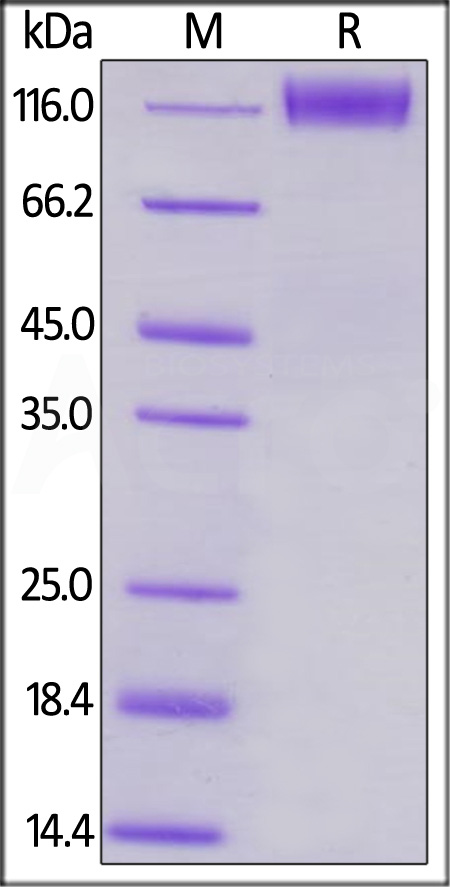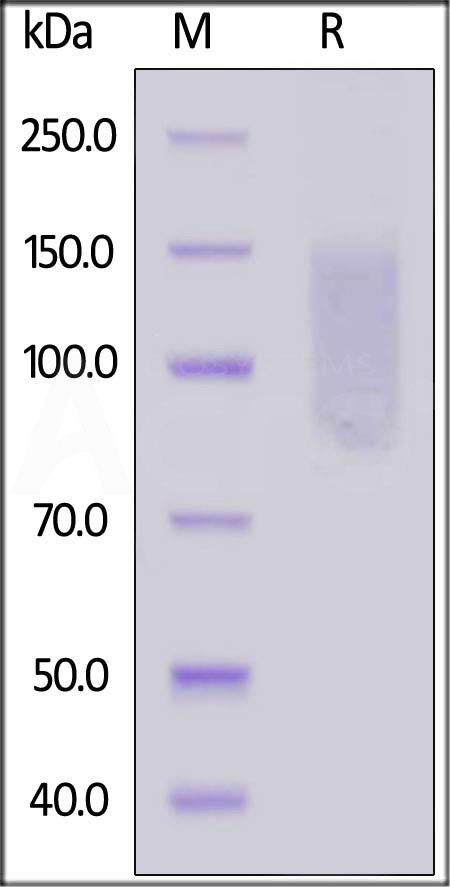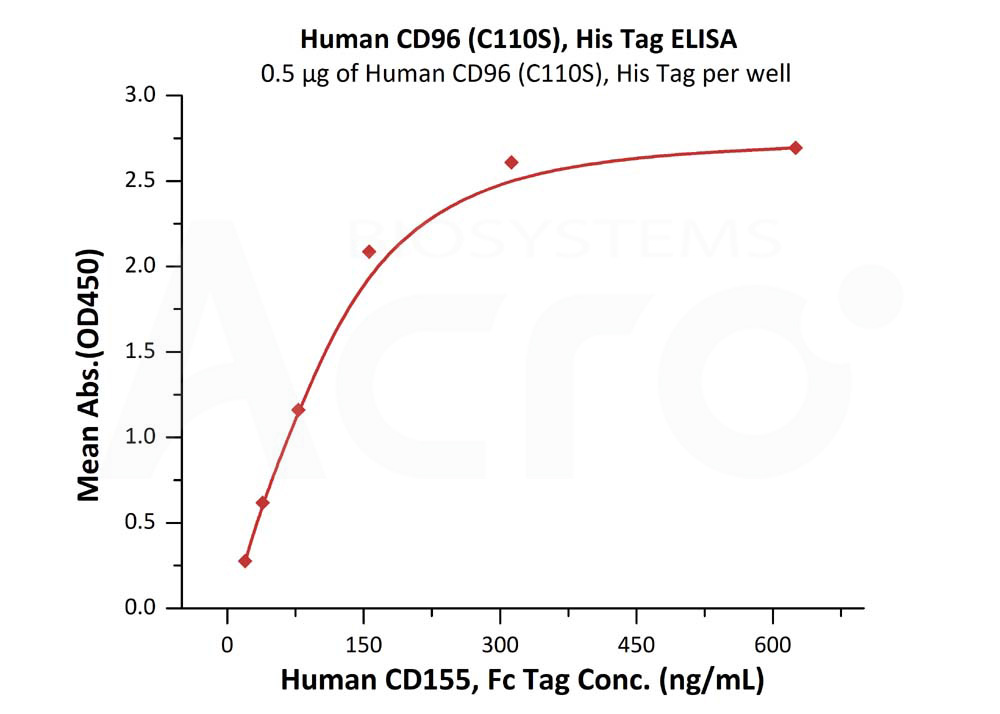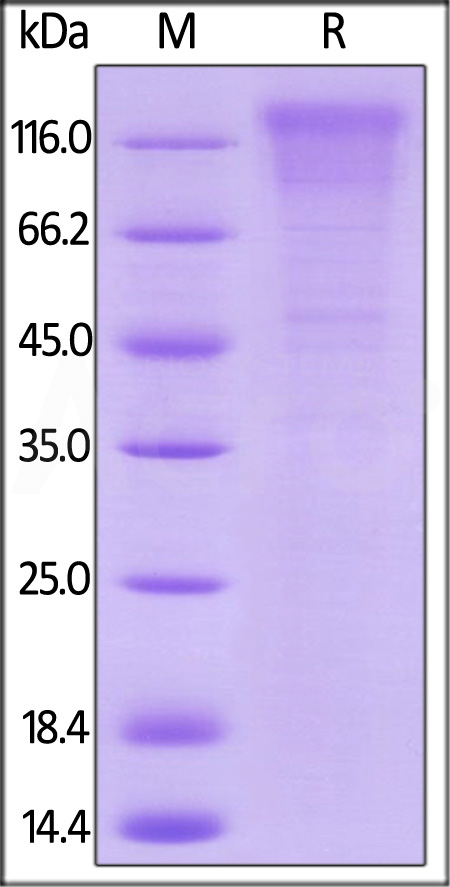CD96分子别名
TACTILE
CD96分子背景
The progression of pancreatic cancer (PC) is significantly associated with tumor immune escape, which may be associated with nature killer (NK) cell dysfunction. CD226, CD96, and TIGIT, which share the ligand CD155, play important roles in the regulation of NK cell function. The present study was conducted to investigate the roles of these molecules in NK cells from PC patients.
TIGIT and CD96 together with the co-stimulatory receptor CD226 form a pathway that is analogous to the CD28/CTLA-4 pathway, in which shared ligands and differential receptor:ligand affinities fine-tune the immune response. Although the roles of TIGIT and CD96 as immune checkpoint receptors in T cell and natural killer cell biology are just beginning to be uncovered, accumulating data support the targeting of these receptors for improving anti-tumor immune responses. A clear understanding of the immune cell populations regulated by TIGIT and CD96 is key to the design of immunotherapies that target these receptors in combination with other existing immune checkpoint blockade therapies.
The dysfunction of CD96 may trigger C syndrome: A syndrome characterized by trigonocephaly, severe mental retardation, hypotonia, variable cardiac defects, redundant skin, and dysmorphic facial features, including upslanted palpebral fissures, epicanthal folds, depressed nasal bridge, and low-set, posteriorly rotated ears.






















 Star Ribbon预染蛋白Marker蛋白质标记物是生物研究和药物开发的重要组成部分。无论是用于蛋白质电泳还是western blot,我们的预染色蛋白质标记物帮助您快速确定目标蛋白质的分子量或评估转移效率。Fc受体蛋白治疗性抗体的功效取决于Fab片段及其对目标抗原的结合活性,还取决于Fc片段及其与关键Fc受体的相互作用。因此,在抗体工程中候选物必须针对一系列受体进行测试。探索我们的重组Fc受体蛋白质的全面收藏!
Star Ribbon预染蛋白Marker蛋白质标记物是生物研究和药物开发的重要组成部分。无论是用于蛋白质电泳还是western blot,我们的预染色蛋白质标记物帮助您快速确定目标蛋白质的分子量或评估转移效率。Fc受体蛋白治疗性抗体的功效取决于Fab片段及其对目标抗原的结合活性,还取决于Fc片段及其与关键Fc受体的相互作用。因此,在抗体工程中候选物必须针对一系列受体进行测试。探索我们的重组Fc受体蛋白质的全面收藏!































 膜杰作
膜杰作 Star Staining
Star Staining

























